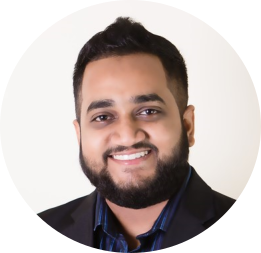OPINION
Imagine being a transgender person accessing healthcare in Malaysia.
First having to gather the courage for what is to come. The stares and whispers around you when you walk in. Having to use an identity card that does not carry your name or reflect your identity, then being called loudly by the wrong name. Having medical personnel examine you with a pen or teach you how to use medical devices so that they would not have to touch you.
Imagine, on top of all that, having unnecessary questions asked about your sex life or your genitals or being preached about how you will suffer in the afterlife if you do not “change” yourself. Being asked to take off all your clothes even if all you have is a fever, then hearing racy or hateful comments about your body. Being assigned into a ward that could be dangerous to your personal safety. Being treated as less than a human being.
Imagine being afraid to see the doctor.
Every trans person in Malaysia has heard, and more likely experienced, the horror stories of discrimination, sexual assault, humiliation and violence in healthcare settings. These fears are not unfounded.
Many of these situations were experienced firsthand by trans people interviewed by the Human Rights Watch for their 2014 Malaysia report titled “I’m Scared to be a Woman.” There have been many similar reports and case studies of trans people experiencing such abuses while seeking and accessing healthcare.
Microaggressions like being asked to explain one’s identity, misgendering, being asked invasive questions that are unrelated to one’s condition (e.g. genitalia, sex life) are even more commonplace in healthcare settings. While these are often dismissed as not being as important as overt violence, research has proven otherwise.
Studies have found that microaggressions cumulatively trigger the same cognitive reaction of facing a traumatic situation. They could also recall previous experiences, causing the transgender person to reexperience the earlier trauma. All these causes significant harm to the mental health of transgender people.
Medical practitioners also generally have very limited or no knowledge about trans bodies and related healthcare needs. An article by Courtney Brooks for the Pacific Standard titled “Shut out of the Malaysian Health-care System, the Transgender Community Seeks Medical Refuge in Thailand” talks about how trans-specific healthcare needs like hormone replacement therapy and surgeries are not readily available in Malaysia, driving trans people to seek and spend their life savings on such services in other countries, often in Thailand.
The article also relates cases of Malaysian doctors who do not know how to treat patients with complications from these surgeries or refuse to treat such emergencies, causing patients to make repeat journeys to Thailand, often while experiencing excruciating pain.
The accelerating trend of ultra-conservatism is also not helping matters, as increased stigma towards trans people is not only tolerated but perpetuated. This has contributed to increasing frequency and severity of violence towards trans people.
Unfortunately, healthcare professionals are not immune to perpetuating stigma and discrimination. This was articulated in a 2018 study titled “Factors Associated with Medical Doctors’ Intentions to Discriminate Against Transgender Patients in Kuala Lumpur, Malaysia” which found that doctors who hold stigmatised views of trans people expressed greater intention to discriminate against them.
The potential violence and discrimination, microaggression, lack of knowledge and ultra-conservatism create an unsafe environment for trans people, which makes us more likely to distrust and fear the healthcare system in Malaysia.
This forces many of us to delay getting treatment or avoid seeking healthcare altogether. This has severe implications not just for the trans people who might only present themselves for treatment when their ailment becomes a serious issue, but also for the government and public health.
While there are efforts to sensitise doctors to gender diverse people, these efforts are mostly led by NGOs and a small group of doctors. As such, these programmes are severely limited and often only cover specific urban community clinics.
The Ministry of Health should seriously consider adopting and upscaling these initiatives to major medical facilities in Malaysia.
Sensitisation towards transgender people and trans-specific healthcare should also be incorporated into the syllabus for aspiring medical professionals based on best practices and scientific knowledge. Aspiring doctors, nurses and allied health personnel should be taught about the best way to care for persons who are transgender, as well as their healthcare needs.
Transgender people and other marginalised communities should not have to fear accessing healthcare and should be able to feel confident and safe while doing so.
Health is a human right. Access to healthcare is not just about building medical facilities, but also about ensuring that the environment of said facilities is conducive, non-threatening and accessible to all.
As published in the Malay Mail.


